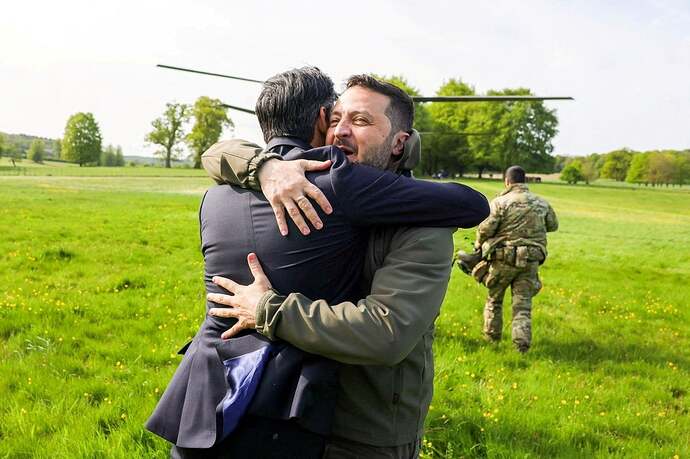The German Marshall Fund of the United States, commonly known as GMF, is a non-partisan think tank and public policy organization that was established in 1972 in commemoration of the Marshall Plan. The organization was founded with the aim of strengthening transatlantic cooperation and shaping policy decisions that advance the interests of both the United States and Europe. Today, the organization operates across the United States and Europe and remains dedicated to the promotion of democracy, international cooperation, and effective policy solutions.
History
The German Marshall Fund was established as a non-profit, private organization during the height of the Cold War. At the time, the US government was looking to promote the unity and cooperation between the United States and its European allies in the face of an increasingly complex geopolitical landscape. The organization was founded by a group of American leaders who believed that the best way to strengthen the transatlantic relationship was to encourage open dialogue and collaboration.
In its early years, the German Marshall Fund focused primarily on fostering transatlantic dialogue and exchange through targeted programs and activities. These initiatives brought together leaders, policymakers, and scholars from both sides of the Atlantic to discuss key issues such as security, energy, economic cooperation, and democracy promotion.
Over time, GMF expanded its reach and expanded its focus to include new areas of work such as urban and regional policy, global governance, and innovation and the digital economy. Today, the organization is recognized as one of the leading think tanks in the world, with a reputation for producing high-quality research and policy recommendations that are informed by rigorous analysis and a commitment to collaboration.
Programs
The German Marshall Fund operates a wide range of programs that are designed to advance the organization’s mission of promoting democracy, international cooperation, and effective policy solutions. These programs are organized into several key areas, including:
- Leadership
GMF’s Leadership Program is designed to identify, develop, and connect future global leaders. The program brings together emerging leaders from the United States and Europe for a series of leadership development activities, including workshops, mentoring, and networking opportunities.
- Policy
GMF’s Policy Program is focused on producing innovative policy solutions that respond to current challenges facing the transatlantic community. The program’s research focuses on topics such as energy, security, government effectiveness, and economic cooperation, among others.
- Urban and Regional Policy
GMF’s Urban and Regional Policy Program works with cities and regions across the United States and Europe to promote innovative approaches to urban development and regional cooperation. The program’s initiatives focus on a wide range of issues such as transportation, economic development, and public services.
- Transatlantic Strategy Group
GMF’s Transatlantic Strategy Group brings together high-level policymakers from both sides of the Atlantic to discuss and develop strategies for addressing common challenges. The group’s work focuses on issues such as regional security, economic cooperation, and global governance.
- Young Professionals Network
GMF’s Young Professionals Network is designed to connect young leaders from the United States and Europe, providing them with opportunities to network, collaborate, and share ideas on the future of the transatlantic relationship.
Impact
Since its founding, the German Marshall Fund has had a significant impact on the transatlantic community, resulting in several notable achievements. These include:
- Advancing Democracy
GMF has been at the forefront of efforts to promote democracy and human rights across Europe and beyond. The organization has been a leading advocate for civil society, freedom of the press, and the rule of law, and has supported efforts to strengthen democratic institutions in places such as Ukraine and the Balkans.
- Promoting Economic Cooperation
GMF has played a key role in promoting economic cooperation between the United States and Europe. The organization has been a strong supporter of the transatlantic trade partnership and has worked to identify new opportunities for economic collaboration, such as through the promotion of innovation and entrepreneurship.
- Strengthening the Transatlantic Relationship
Perhaps most notably, the German Marshall Fund has played a crucial role in strengthening the transatlantic relationship over the past four decades, fostering understanding and collaboration between the United States and its European allies. Through its programs, research, and advocacy work, the organization has helped to build a network of leaders and policymakers who are committed to working together to address common challenges and advance shared interests.
Conclusion
The German Marshall Fund is a non-partisan think tank and public policy organization that has played a critical role in strengthening the transatlantic relationship over the past four decades. Through its programs, research, and advocacy work, the organization has promoted democracy, economic cooperation, and effective policy solutions while fostering connections between emerging leaders on both sides of the Atlantic. Today, GMF continues to be a leader in the field of transatlantic relations, driving conversations and actions that advance the interests of both the United States and Europe.
Disclaimer
6do Encyclopedia represents the inaugural AI-driven knowledge repository, and we cordially invite all community users to collaborate and contribute to the enhancement of its accuracy and completeness.
Should you identify any inaccuracies or discrepancies, we respectfully request that you promptly bring these to our attention. Furthermore, you are encouraged to engage in dialogue with the 6do AI chatbot for clarifications.
Please be advised that when utilizing the resources provided by 6do Encyclopedia, users must exercise due care and diligence with respect to the information contained therein. We expressly disclaim any and all legal liabilities arising from the use of such content.














